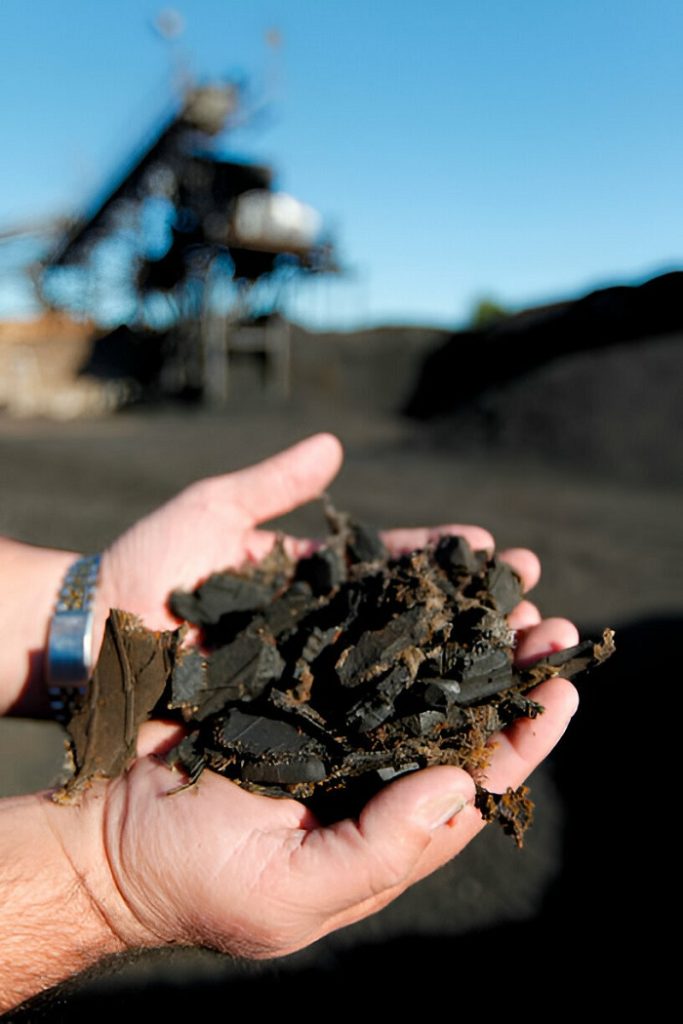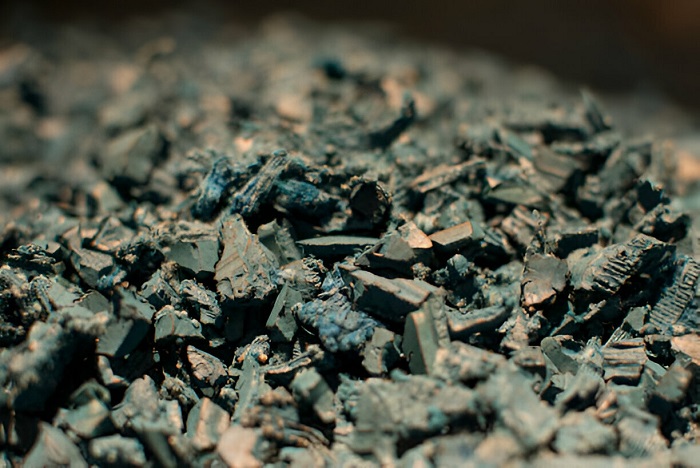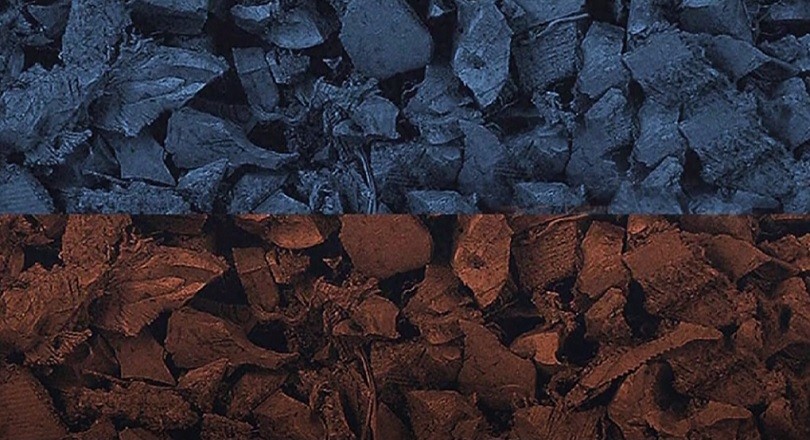Last Updated on February 28, 2025
Rubber mulch is generally safe for dogs but can pose risks if ingested. Monitor your pet to prevent any issues.
Rubber mulch is an increasingly popular landscaping material. It offers benefits like weed control and moisture retention. Made from recycled tires, it is eco-friendly and long-lasting. Dog owners often wonder about the safety of their pets. While rubber mulch is non-toxic and less likely to attract pests, ingestion can lead to gastrointestinal problems.
Chewing on mulch can also damage a dog’s teeth. Always supervise your dog in areas with rubber mulch. Consider other options if your pet likes to chew on everything. Proper use and vigilance can make rubber mulch a safe choice for your garden and your dog.
Rubber Mulch Safety Concerns

Rubber mulch is popular in playgrounds and gardens. Many dog owners worry about its safety. This section focuses on the potential risks. These risks include toxins and choking hazards.
Potential Toxins In Rubber Mulch
Rubber mulch often comes from recycled tires. Tires can contain harmful chemicals. These chemicals can leach into the soil. Dogs might ingest these toxins while playing.
Common toxins in rubber mulch include:
- Heavy metals like zinc and lead
- Polycyclic aromatic hydrocarbons (PAHs)
- Vulcanization chemicals
These substances can be harmful to dogs. Symptoms might include vomiting, diarrhea, and lethargy. Always check the mulch’s safety ratings before use.
Choking Hazards And Ingestion Risks
Rubber mulch pieces can vary in size. Some pieces are small enough to be swallowed. This poses a choking hazard for dogs. Ingested rubber can cause digestive issues.
Signs of ingestion problems include:
- Excessive drooling
- Pawing at the mouth
- Gagging or choking sounds
If you notice these signs, contact your vet immediately. Supervise your dog while they play in areas with rubber mulch.
Switch to larger mulch pieces if possible. This reduces the risk of choking.
Comparing Rubber To Other Mulch Types
Choosing the right mulch for your garden is crucial. Especially if you have a furry friend. Let’s compare rubber mulch to other types. This helps in ensuring canine safety.
Organic Mulches And Their Risks
Organic mulches include bark, straw, and leaves. They decompose over time. This can attract insects and pests. These can be harmful to dogs.
Some organic mulches contain toxic substances. Cocoa mulch is a popular example. It smells like chocolate. Dogs might eat it. This can lead to poisoning.
Organic mulches can also cause blockages. Dogs might ingest large pieces. This can lead to digestive problems. Always supervise your dog around organic mulches.
Rubber Vs. Wood Chips For Canine Safety
Wood chips are another common mulch type. They are natural and biodegradable. But they can pose risks to dogs.
| Aspect | Rubber Mulch | Wood Chips |
|---|---|---|
| Durability | Lasts longer | Decomposes over time |
| Ingestion Risk | Low | High |
| Maintenance | Low | High |
Rubber mulch is durable. It doesn’t decompose. This means fewer pests. Dogs are less likely to eat it. This reduces ingestion risks.
Wood chips can splinter. This can injure a dog’s mouth and paws. Rubber mulch is softer. It provides a safer surface for play.
Wood chips need regular replacement. Rubber mulch has low maintenance. It’s a more cost-effective option over time.
Both mulch types have pros and cons. For canine safety, rubber mulch stands out. It offers durability, low risk, and low maintenance.
Precautions And Recommendations
Is rubber mulch safe for dogs? Many dog owners ask this question. Rubber mulch has its benefits. It is durable and low maintenance. But, it also has risks. Dogs might chew on it. It can cause health problems. Here are some precautions and recommendations for dog owners.
Safe Mulch Alternatives For Dog Owners
Choosing the right mulch is important. Some mulches are safer for dogs. Here are some alternatives:
- Cedar Mulch: Cedar mulch repels insects. It also smells good. Dogs usually do not eat it.
- Pine Mulch: Pine mulch is natural. It is less likely to cause harm if ingested.
- Leaf Mulch: Leaf mulch is organic. It is safe and biodegradable.
Best Practices For Mulch Use In Pet-friendly Areas
Using mulch in pet-friendly areas needs some care. Follow these best practices:
- Monitor Your Dog: Keep an eye on your dog. Stop them if they try to eat the mulch.
- Choose Non-Toxic Mulch: Always choose non-toxic mulch. Avoid cocoa mulch. It can be very harmful.
- Regular Maintenance: Check the mulch area often. Remove any pieces that look chewed or damaged.
- Provide Alternatives: Give your dog toys and chews. This will keep them busy and away from the mulch.
By following these precautions and recommendations, you can create a safe outdoor space for your dogs.

Frequently Asked Questions
What Are The Disadvantages Of Rubber Mulch?
Rubber mulch can be expensive and may release toxic chemicals. It can also overheat plants and isn’t biodegradable.
What Mulch Is Safest For Dogs?
Cedar, pine, and hemlock mulches are safest for dogs. Avoid cocoa bean mulch as it’s toxic. Always supervise pets.
Does Rubber Mulch Release Toxins?
Rubber mulch can release toxins, especially when exposed to high temperatures or UV light. These chemicals may pose health risks.
Is Rubber Mulch Safer Than Wood Mulch?
Yes, rubber mulch is often safer than wood mulch. It doesn’t decompose, resists pests, and provides better cushioning for falls.
Is Rubber Mulch Toxic To Dogs?
Rubber mulch is generally non-toxic. Ensure it is free from chemicals and additives before use around pets.
Conclusion
Rubber mulch can be safe for dogs with proper precautions. Always choose non-toxic, pet-friendly options. Monitor your dog while playing outside. Regularly check for any signs of ingestion or allergies. By taking these steps, you can ensure a safe and enjoyable environment for your furry friend.

